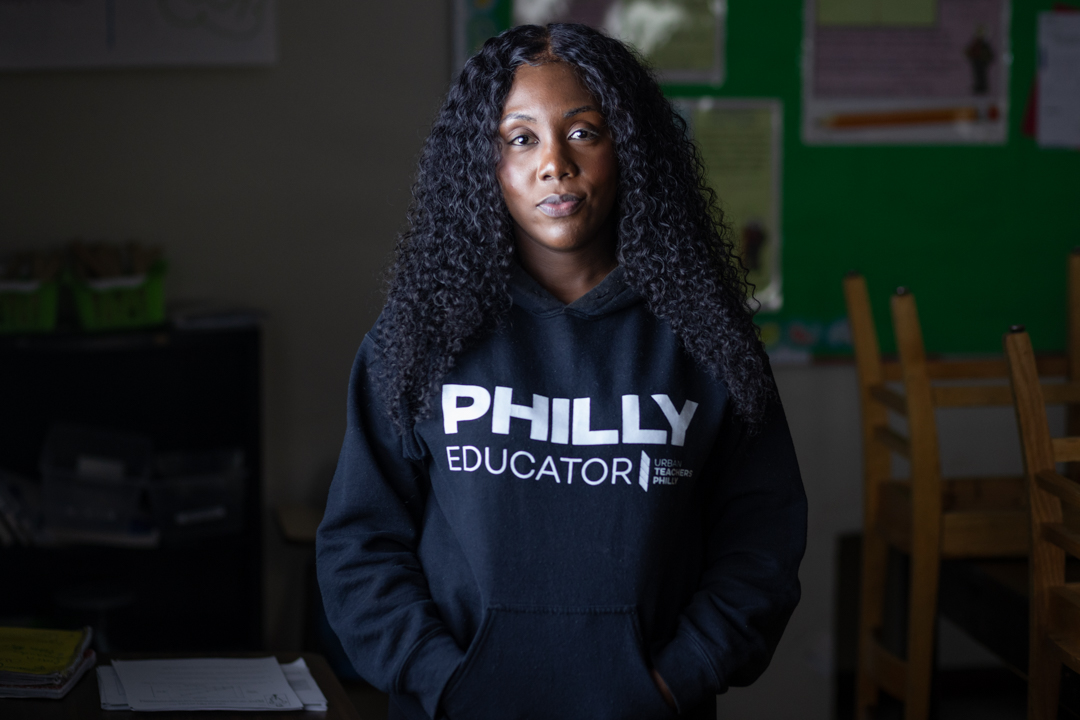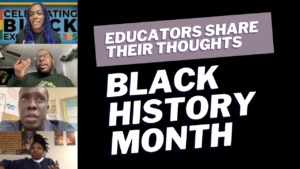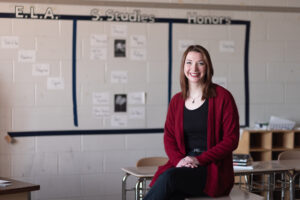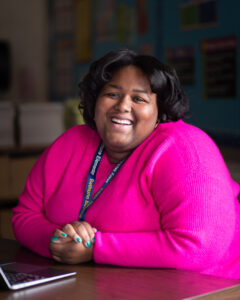I never thought of becoming a teacher. Early on, I wanted to be a pediatrician, but I was more interested in studying mental health and behavior vs. other sciences, so I thought, ‘Psychology would work.’ I thought it was a good middle ground, compared to medicine. I always wanted to know why things are the way they are.
When I first graduated, I just knew I wanted to help people. I did a few years in foster care and adoptions, and I loved it. I wanted to help kids. That was my thing.
I decided to switch gears after I did four or five years of that, to see if I liked working with adults. I learned quickly that that was not my thing. After I had my daughter, I realized I didn’t want to be in the social services field. I knew I wouldn’t have a lot of time to tend to my family and be able to do what I was passionate about.
So I thought about education. I didn’t think that I could teach; when I think of teachers, I think they know everything, at least for the most part. I ran across City Teaching Alliance. I applied, did an interview, and got accepted, and then I was like, ‘Okay, I can actually do this.’
When getting ready to go into the school year, mentally I knew that I was ready, because I’d always had experience working with kids. But I was still building my confidence, knowing that these students were going to be looking to me for anything that they needed. I needed to be ready.
Once I got into the classroom, I knew that that was it. I knew I should have done this a long time ago.
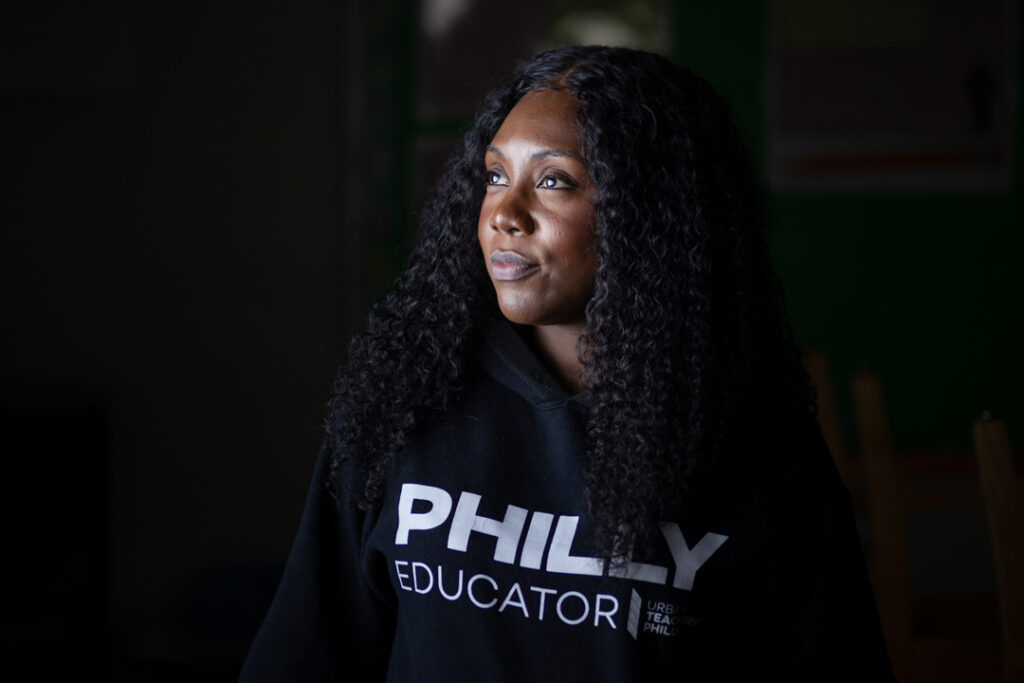
I worked at a Spanish-speaking nonprofit. They have several social services, including foster care, adoption, and children and youth enrichment programs.
I wanted to work with troubled youth, because of my experiences studying psychology in undergrad. I did a lot of behavioral stuff with kids who would not get placed in foster care and ended up in group homes. A lot of people don’t want those children, ranging from 12 to 18 years old. Everyone loves the younger kids — but preteens and on, they have a lot to offer too. I wanted to make sure they knew that they were supported, so that’s why I went into foster care services.
We would recruit foster and kinship parents. I would go into the homes, make sure that they were viable fits, and certify them as foster homes. It’s one thing if someone wants to foster, but let’s make sure that they’re doing it for the right reasons before they receive any children.
Once we approved a foster home and everything seemed to be okay, we did an extensive assessment. If they passed, then we would call to say, ‘Hey, I’m ready to have this child placed here.’ Then we would place the child in the home and maintain compliance, and make sure that the relationships were built the way they needed to be built.
A lot of these foster parents go on to adopt the children. They stay long-term, because we don’t want them to keep bouncing around. The kids want stability.
I was working a lot of hours. Children, especially teenagers, really need support from their parents or adults in general. There were a lot of emotional tolls. I felt like there were never enough hours in the day to be able to do everything. Once I had my daughter, I knew I had to cut something and slow down.
It was great, though. I built a lot of relationships with the parents and the kids, and I still have connections with them today.
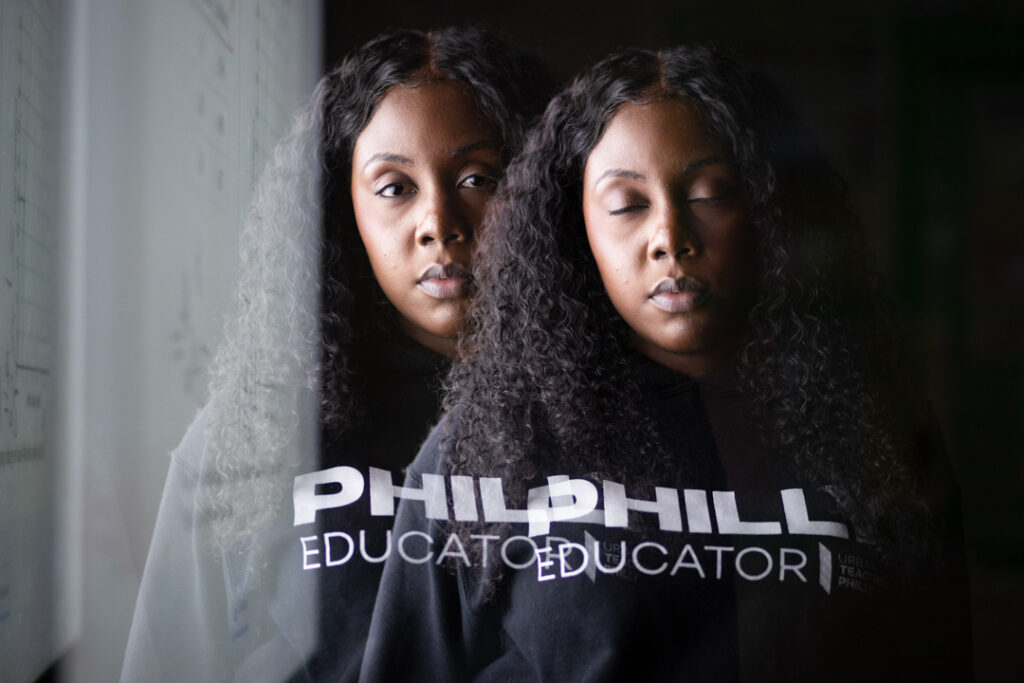
I’m from Philly. I went to a church with a lot of youth programs, and a lot of the younger kids were drawn to me. Even before I became a teacher, it was always my thing.
At our church, they spoke French, but Creole for the most part. It definitely influenced a lot of my decisions. They had a whole education department, where they stressed the importance of education not only for the kids but for everyone involved. They would try to do different things to make sure that everyone was learning in the best way they could. Since many people were new to the country, they tried to provide resources so that everyone could benefit in the best way.
When I was growing up, the church would showcase accomplishments. You wanted to strive to become like one of those people who did well. They would have a whole day for graduates, as early as kindergarten all the way up to getting your doctorate. They had a whole week dedicated to different seminars on relationships with your children, because they believe there is more than one type of influence on your child’s upbringing.
They do a good job of recognizing the whole self, not just your spiritual self. I still try to go. I do try to stay connected. Being from the inner city, I want kids to have the hope of, ‘I can do something that I want to do.’ I always wanted to be an inspiration, for the kids who look like me.
I grew up middle class, and a lot of these kids go through a lot worse. I can’t relate to everything. Yes, we can relate on our skin tone; but growing up, especially because my parents were immigrants, they looked at things a little differently than families that are African American. As I grew older and heard different experiences, that’s when I was able to empathize. My parents did a good job of making sure we didn’t really know what suffering was.
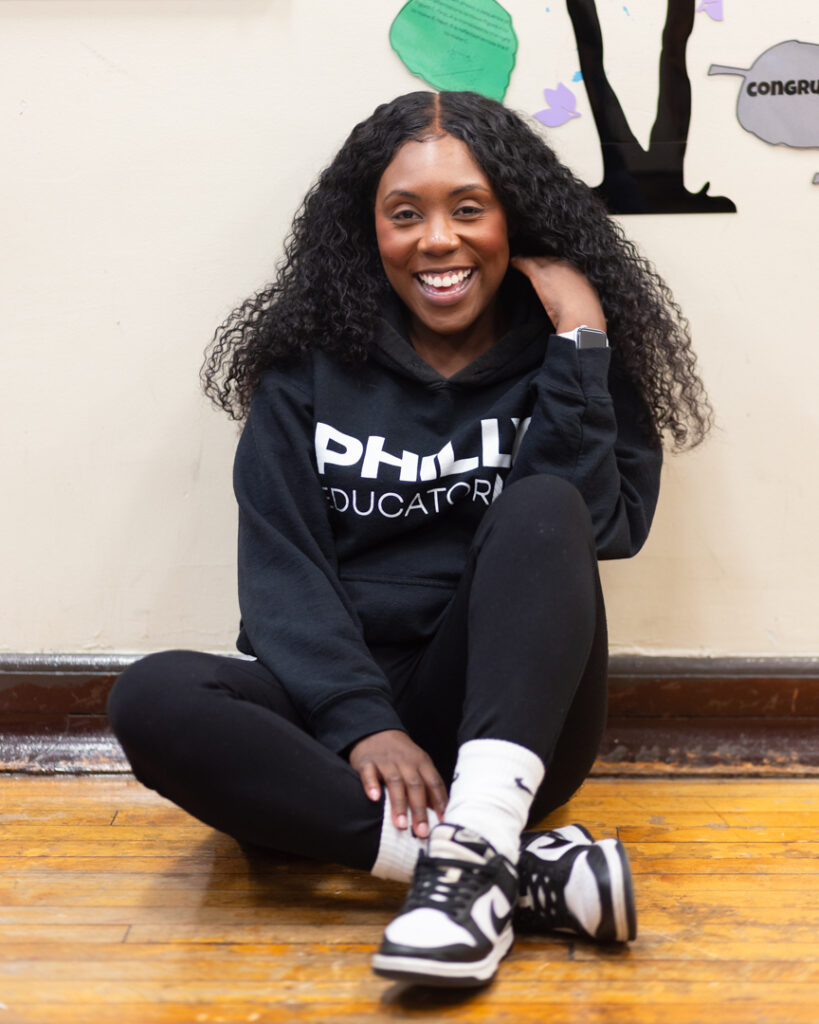
I got lucky, being placed here. There’s definitely a need, especially in terms of translation — there are a lot of resources for Spanish, but for other languages there’s nothing. I feel like it’s destiny I was put here, because it’s so similar to how I grew up and it’s good to have someone who can relate in that way.
A lot of immigrant parents feel at a loss, especially because they have to work and they are not always involved in their child’s education. It’s not easy when they don’t have anyone to explain how things work or why their child may not be passing.
There is a language hotline that the school tries to use, but I don’t think there are enough people to translate for Haitian Americans. Our math workbooks have everything in Spanish, but for those Haitian kids, I’m only one person and I can’t do everything.
Teachers or even the principal will call me down for meetings for students that are not my kids. They need someone to translate to the parents, to communicate what’s going on. I like to try to be as resourceful as I can be because I get it, my parents were immigrants. They did not speak the best English, but they wanted to make sure that we went to school and did what we needed to do. They tried their best, but not all the parents can be that involved. Not all of them know what to do or how to get the proper help.
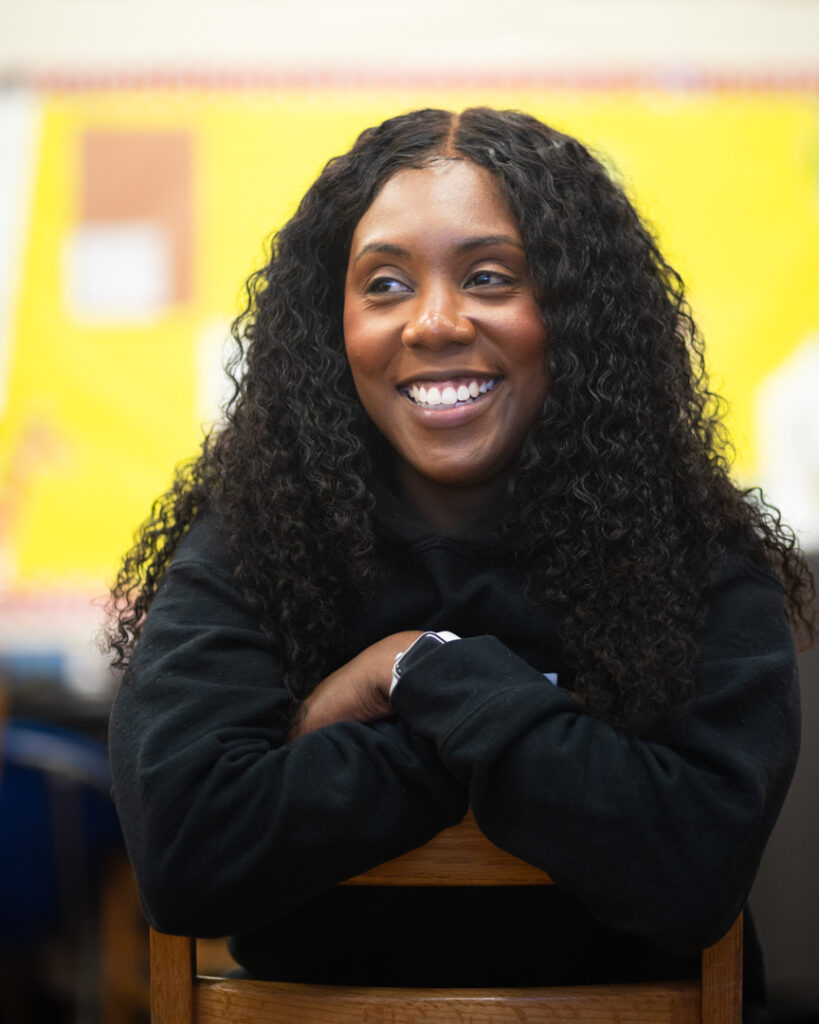
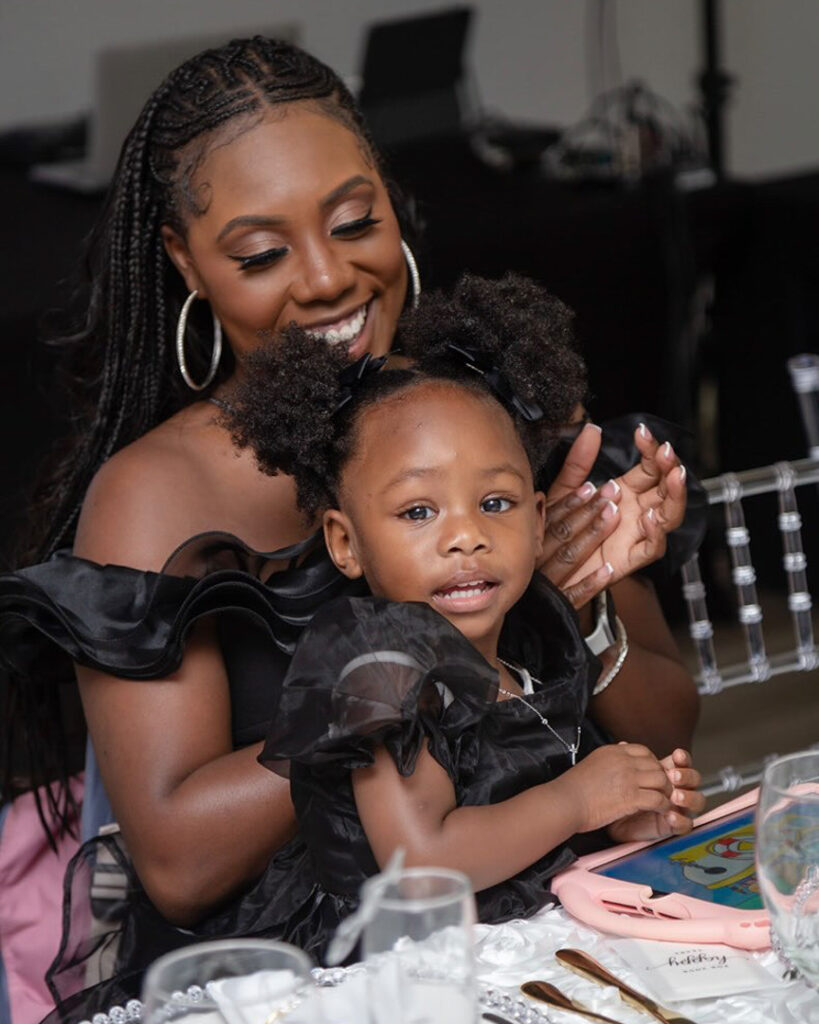
This is my second year teaching. Back in 2021, I had my daughter, and I knew I wanted to go into education. I just didn’t know how that was gonna work, especially because I didn’t go to school for teaching.
I was like, ‘Let me try to get into substitute teaching.’ I was going through that process, and then one day I was on Indeed and I saw teacher positions with City Teaching Alliance. I knew I wanted to go back for my master’s, so when I saw that was a part of the program, I thought, ‘Okay, this is something I want to get into.’ Especially since it said there would be coaching.
When you first come in, you’re the teacher’s assistant. That’s your resident year. Because of my background, I didn’t feel intimidated by the children, so it was all about learning how to actually teach a subject.
When I came in, my host teacher was really good about making sure that I got real experience. By September, I was already teaching by myself. In October, she had an emergency and she had to be gone for a week, and they needed coverage, so I did that.
It was just an affirming year, my resident year.
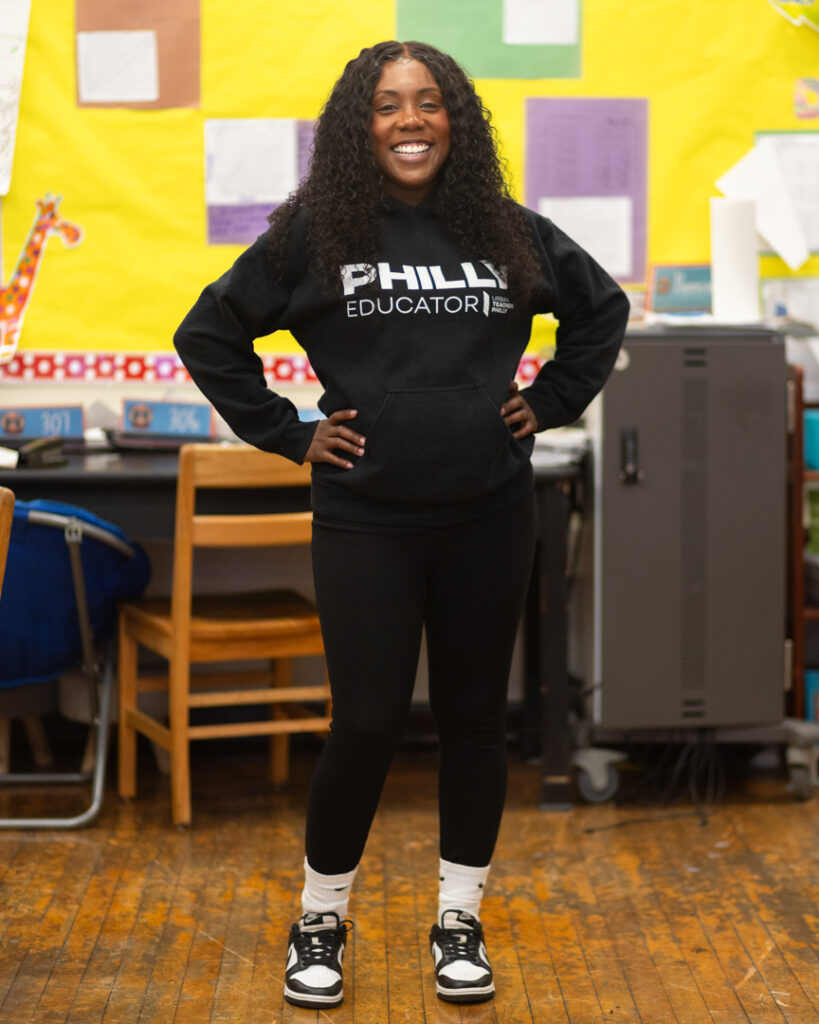
I wouldn’t be able to do it if it weren’t for the community they have made here. Of course, every school has their imperfections. This school is not perfect. But the teachers are so supportive of one another and of making sure that everyone succeeds. And the admin give you the resources that you need to do it.
When I started in the classroom, I was able to shadow and watch the math leader for the entire school. She really took the time to make sure that I understood how to roll out any concepts. Even now, if I need to learn how to teach a concept, I can go to her and ask, ‘Hey, how do I do this?’ Everyone is quick to extend a hand to make sure that things get done for the kids. Their focus is on the kids, and it shows, because they all work together.
The people make sure that you understand your value here. If you need any support, you can get that support here — you are not going to have to do this by yourself. And if you need to take time to do whatever you need to do, especially personally, they will support you to do that. For the most part, when there needs to be coverage, we all kind of rotate around when we have our preps. So the team always finds a way to make it work.

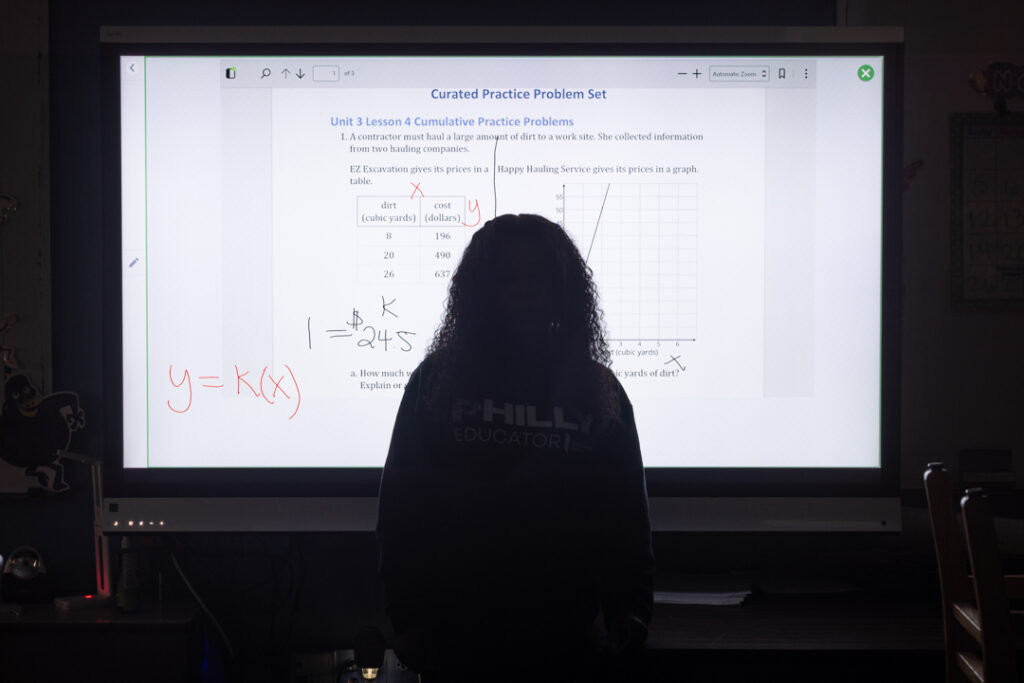
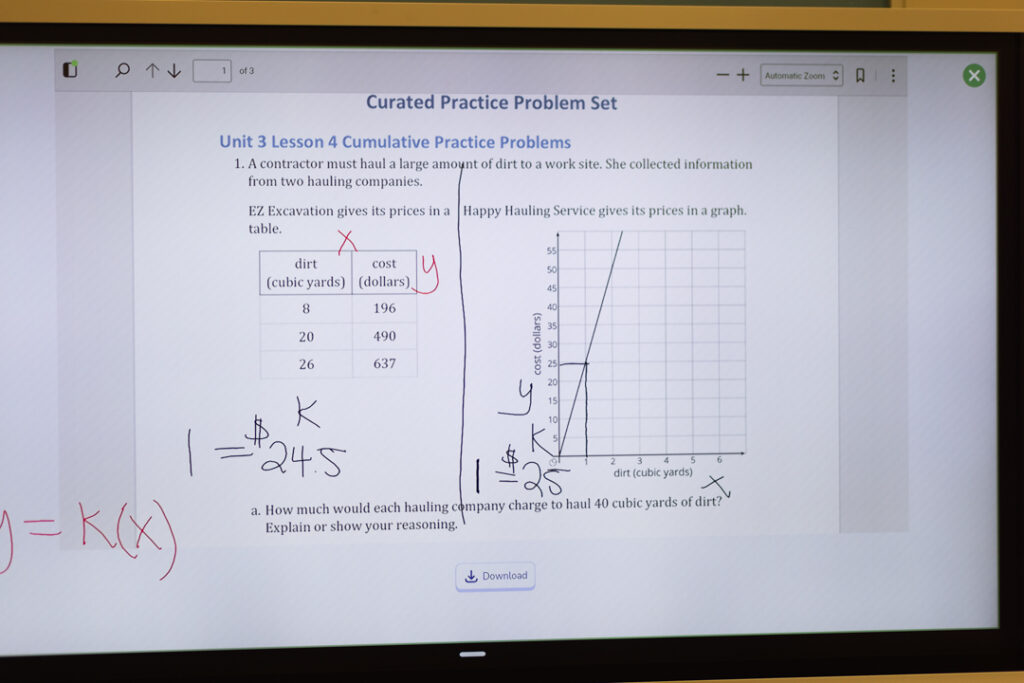
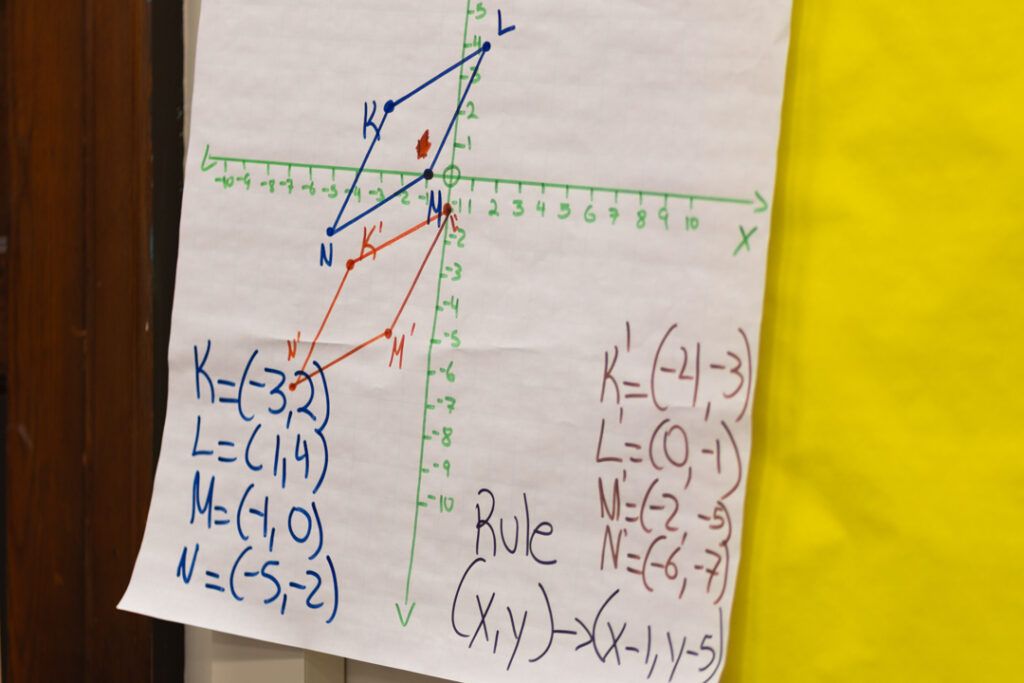
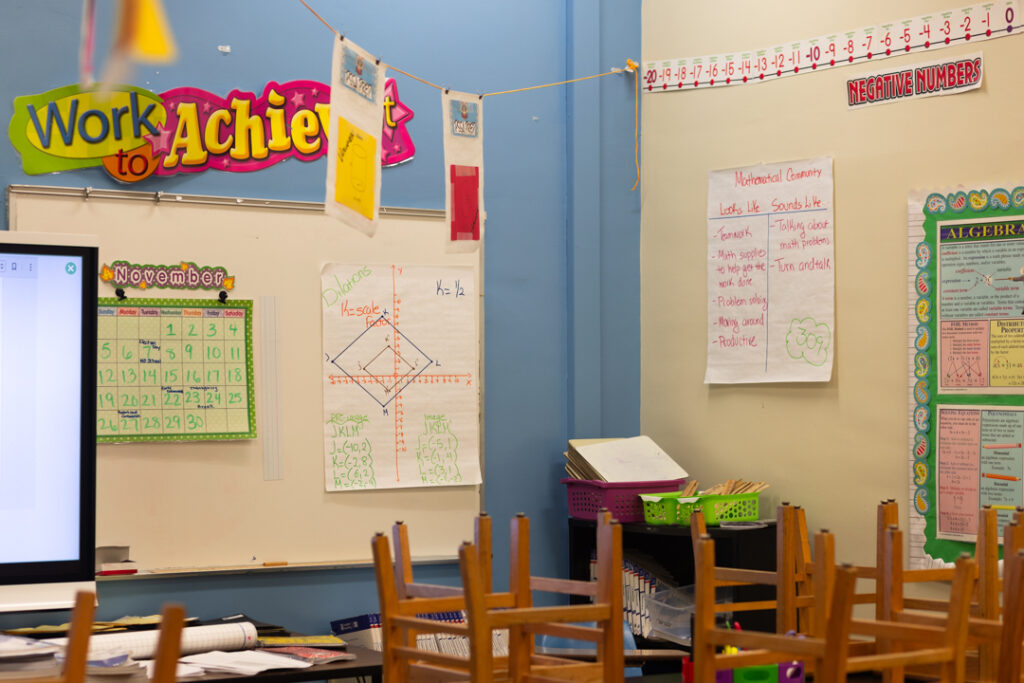
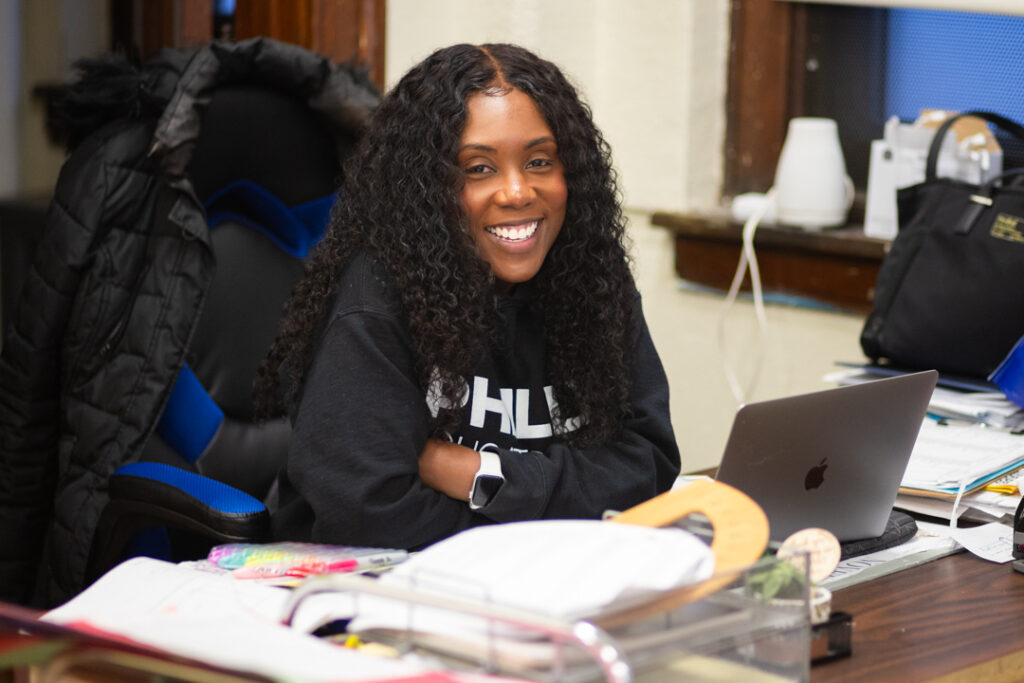
As someone that hated math all their life, I never thought I was gonna be teaching math. It was a struggle for me to even get my certifications for math. I had to take my test so many times. At the end of the day, all I wanted to do was teach kids and make an impact. The kids don’t know that I’m not good at it. They’re kind of like, ‘She looks like she knows everything.’ But that’s because I take the time to learn the concepts.
I can’t just be their cool teacher. So taking the extra hours that I need to run through math problems so that I know how to explain them to them when they have misconceptions — I really want to make sure that I’m doing it well enough for them.
A lot of them tell me, ‘I never understood math before. This is my first year ever understanding it.’
When parents say, ‘My kid has never been good at math before,’ I’ll tell them, ‘I’ve never been good at math, either. If they are able to count one through 10, then they’ll be able to figure out the next concept.’
I try to give them tools to help them effectively learn the concepts, but it’s a lot of work.
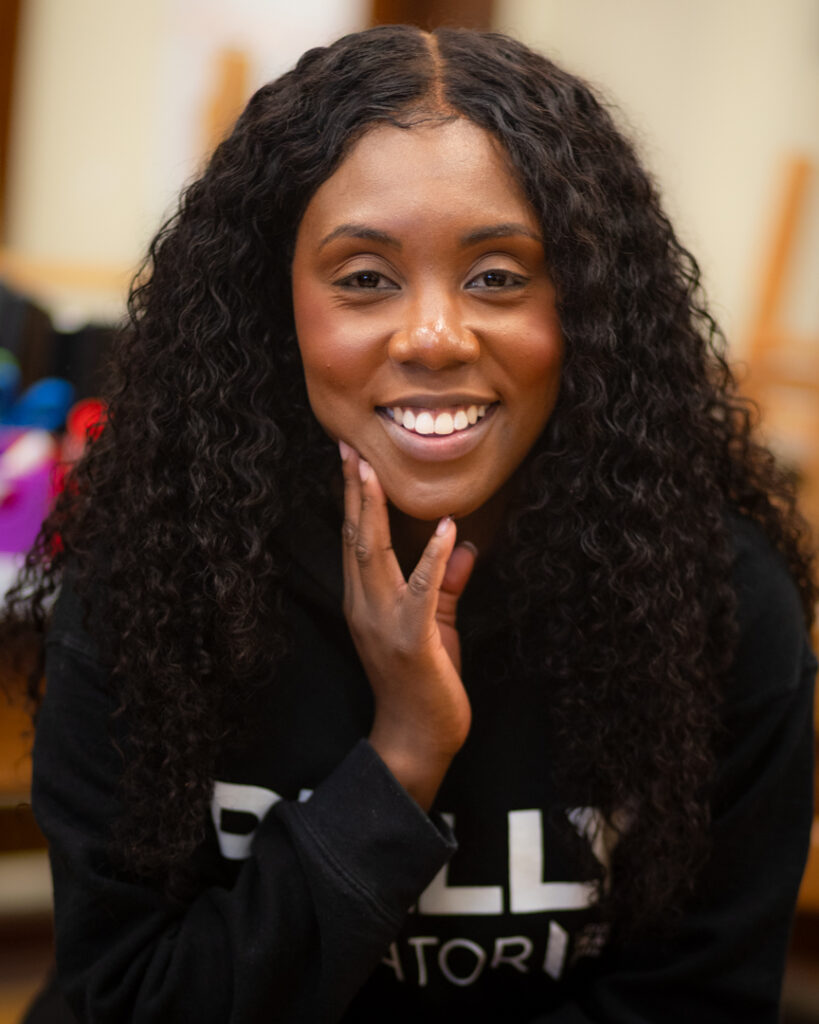
Knowing yourself is important. I don’t want to say that I want to teach forever, but I know that teaching is something that definitely gives me a different type of joy. I like talking about it. I like being able to see the lightbulbs click.
Report card conferences definitely make me emotional, but it’s a good emotion; because when speaking with the parents, you see they really want the best for their kids. I was speaking to a Haitian parent who came to America a few years ago. She came in concerned because she just didn’t know what to expect. Her daughter got straight A’s. I told the mom, ‘She may not get everything right away, but she does try her best.’ She felt like she wasn’t doing enough as a parent to support her, because her daughter would sometimes come home and say, ‘I don’t know how to do this.’ I was reassuring her mom that I know what it’s like to be a parent, and I also know what it’s like to have a parent who is hard working and can’t help you with everything.
I’m helping the families understand that they can let go sometimes, to let their children make the best decisions for their education. We just have to sometimes trust that they’re going to get there, with our guidance. We have to be okay with taking that step back.
Teaching is one thing, but being able to have the relationships to support the families and the students simultaneously is something that I always wanted to do. When I have those conversations with parents, whether they’re good or bad conversations, they’re insightful.
–Alexandra Mondelus-Duffy
Teacher at Olney Elementary School
City Teaching Alliance Fellow, Cohort 2022
Philadelphia, PA
